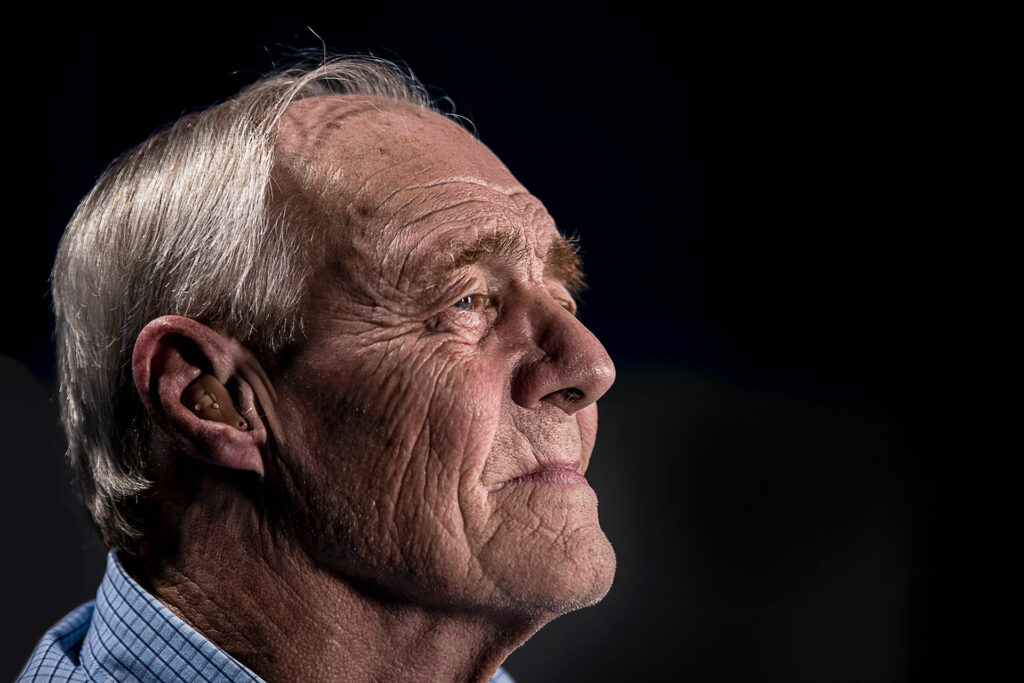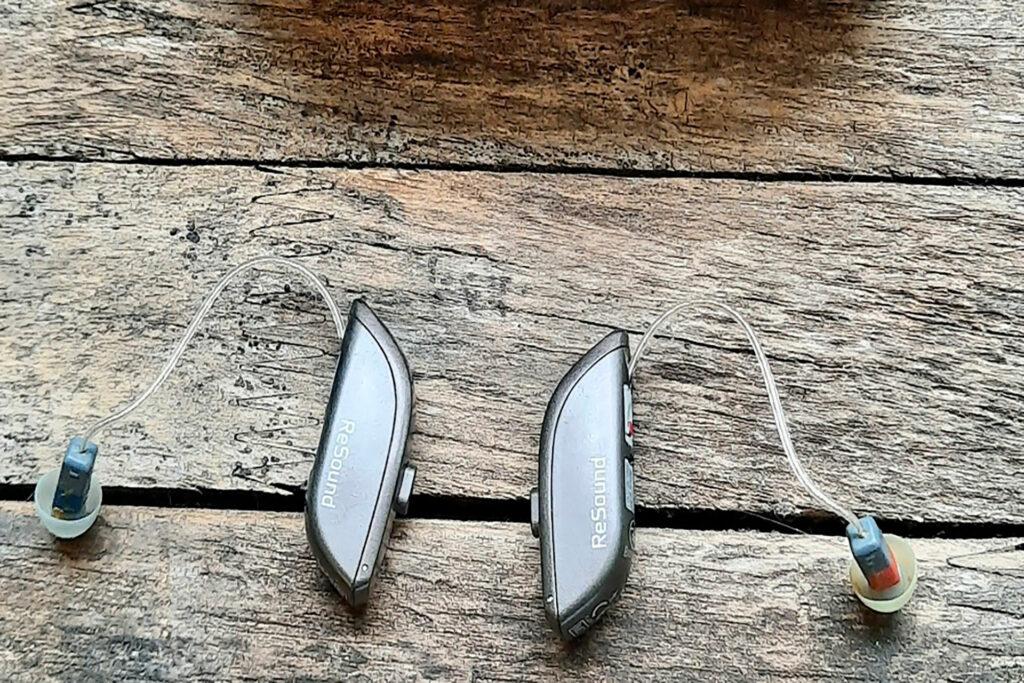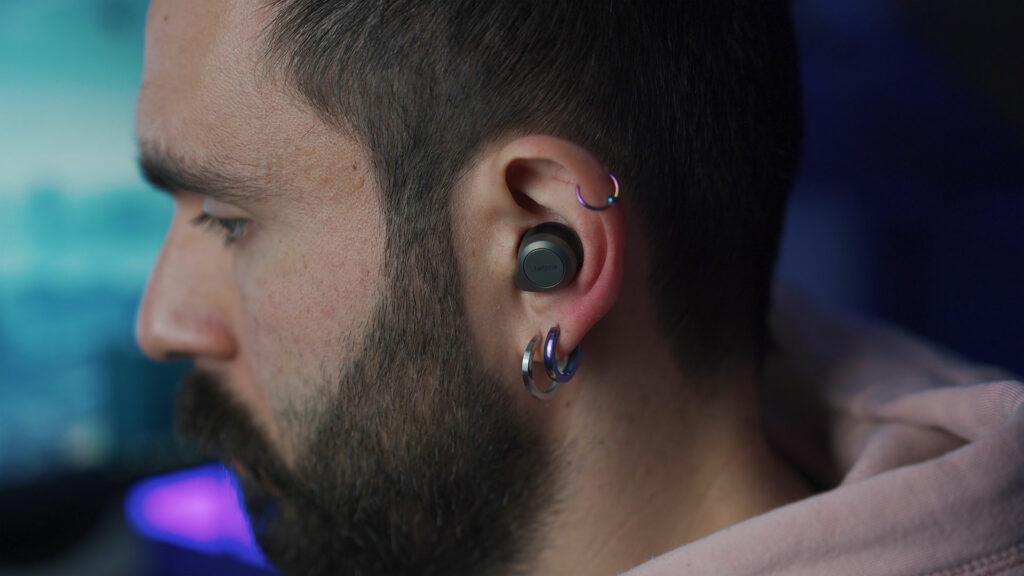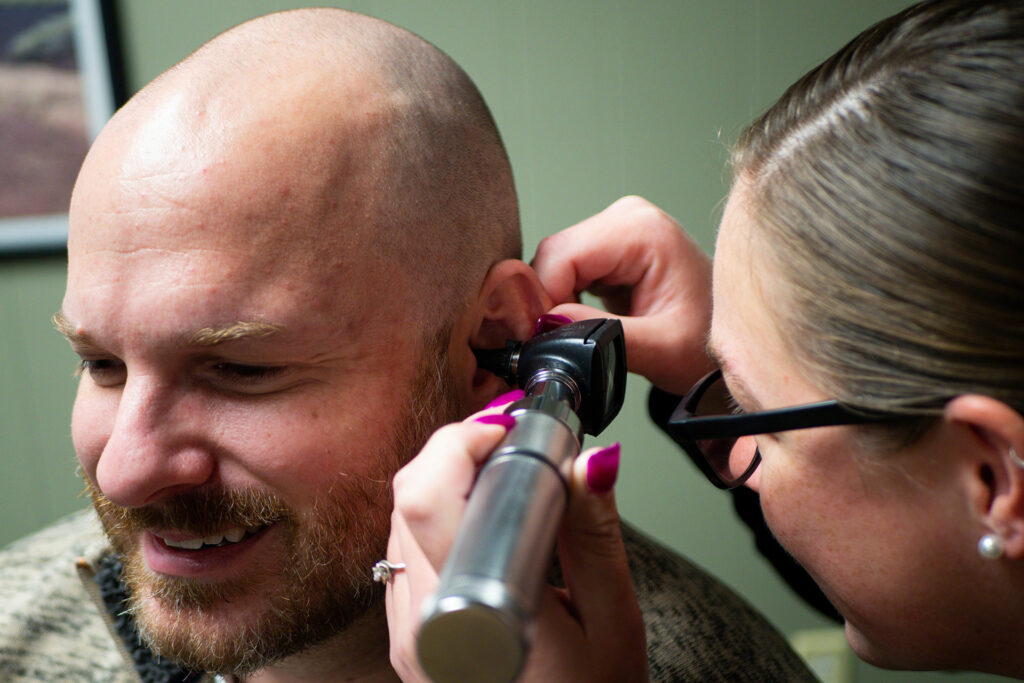The human ear is quite an amazing piece of audio gear. It’s an intricate yet vast system of tiny, superbly-tuned components working in sync to convert mechanical energy into what we interpret as sound. Most people, audiophiles included, will go their entire lives with limited understanding of the very mechanism that allows us to enjoy auditory information and experience musical bliss in its highest form. As a licensed Speech-Language Pathologist by trade for over 13 years, not only have I extensively studied the science of hearing and sound (I have a masters in Communication Sciences and Disorders), but I have witnessed the negative impact of hearing loss on a daily basis in my work with adult patients.

What Causes Hearing Loss?
I have had many conversations over the years with patients who considered themselves audiophiles or just audio enthusiasts, but have sadly retired from the hobby due the progression of their hearing loss and music “just not sounding the same,” as a former patient of mine described it. Despite the presence of hearing aids, he sadly just could not achieve the same level of musical detail as when his hearing was within normal range, and decided to call it quits with the hobby completely. I distinctly remember this man, a retired radio engineer in his early 80s, kindly offering me his vintage, three-way JBL loudspeakers free of charge. I was legally and morally obligated to politely refuse, and encouraged him to find a teenager in the neighborhood who might take them off his hands.
In its early stages, hearing loss negatively impacts the ability to receptively communicate in noisy environments, and reduces the overall enjoyment of hobbies such as listening to music or watching movies. As hearing loss progresses in severity, it can lead to increased isolation, reduced overall activity, and a significant decline in quality of life. A recent study by Johns Hopkins links hearing loss with a significant increase in the risk of developing dementia and other cognitive impairments.
Sensorineural hearing loss, the most common type, is typically caused by some combination of noise exposure, genetics, and time. Men are twice as likely to experience hearing loss than women, with age being the most reliable predictor. Males between the ages of 60 and 69 have the highest incidence and prevalence, which alarmingly places a core demographic of the audiophile community at the highest risk.
I’ll use my own dad, who bought his first pair of hearing aids last year, as a case study for the purposes of this article. He struggled with progressive tinnitus (ringing in the ears) for years before receiving an official hearing loss diagnosis. My mission now is to act as a hybrid audiophile/audiologist; the challenge being to find speakers paired with an equalizer or equalizing software that match his current hearing and sound profile. This will be an ongoing process as his hearing naturally fades and devolves, but I hope to provide him with the best listening experience possible for as long as I can, even if he will never be able to hear music in its purest form again.
What Does Hearing Loss Sound Like?
No two cases of hearing loss are the same, but there are some common patterns. High frequencies are the first to go. High-frequency hearing loss is typically diagnosed when a patient has difficulty hearing within the 2,000-to-8,000Hz range. We audiophiles recognize that there is much more auditory information to be heard beyond 8,000Hz, which is why it can be so painful to lose that top-end sparkle we associate with the highest of frequencies reproduced in the music we love. My dad recently confessed that female vocals specifically have become considerably less detailed with his particular case of hearing loss, which has been devastating and frustrating, since many of his favorite artists are female.
Over time, details will fall flat. Many of my past patients have reported that detail in music degrades fast with hearing loss and can be the most frustrating casualty. Separation of harmonies and instrumentation, subtleties in finger picking/plucking, dynamics, and many of the other unique characteristics that color our favorite musical selections will blend together in a maddening gray area.
You might need to turn up the volume more than before. Hearing is measured in terms of frequency (Hertz) and amplitude/loudness (decibels). With hearing loss, not only do certain frequencies disappear, but you may lose the ability to hear adequately, or at all, at certain volume ranges. This means you will need to increase the volume of your listening equipment to compensate.

What Can I Do to Protect My Hearing?
A great rule is to avoid prolonged exposure to sound above 85 dB. Repeatedly subjecting your ears to OSHA’s danger zone is a near-certain death sentence for the stereocilia (tiny hair cells inside your inner ear responsible for hearing). High-powered listening sessions, days-long music festivals, or even turning your headphones up too high for too long can and will do serious damage. Occupational or environmental exposure can also sneak up on you. It may take years or even decades, but the eventual and inevitable permanent loss of those cells will result in some form and severity of hearing loss.
Use hearing protection in all listening scenarios where a volume knob does not exist. Protecting the middle and inner ears is not difficult or expensive and is a no-brainer for live concerts, movies, and other potentially auditorily-demanding situations. Attending a single action flick can actually cause permanent hearing damage, as movie theaters are loosely regulated and often peak at 105dB or louder. I recently took my kids to see the new Teenage Mutant Ninja Turtles movie, and according to my iPhone dB meter, there were repeated peak amplitude readings above 105 dB, with an average range of 85 to 90dB during action sequences. A good pair earplugs will only set you back $50 and are invaluable in the quest to preserve your hearing. There are also less expensive, over-the-ear options for kids for around $15.

Think about the 60/60 Rule when using headphones or when cranking up your system.
Apple AirPods and many other popular earbuds, in-ear-monitors (IEMs), and headphones have max volumes near or over the 100dB mark. We tend to crank the volume even higher to drown out background noise, which is why Active Noise-Cancelling (ANC) earbuds and headphones are actually recommended by audiologists, when used responsibly.
Considering you can get a very good-quality pair of ANC headphones for under $400 and an in-ear pair for less than $200, enjoying music while simultaneously protecting your precious hearing is not all that difficult for most audiophiles. There is a growing list of acceptable budget options as well.
Hearing professionals recommend listening to your music at 60 percent volume for no longer than 60 minutes per day.

Hearing-Loss Shaming and What We Can Do to Stop It
I see hearing shaming all the time in the geriatric healthcare world, believe it or not. Those patients who still have their hearing sometimes become frustrated with, and may even ostracize, others who have severe hearing loss. They stop inviting said patients to Bingo, exclude them from conversations, and refuse to repeat things for clarification. You’d be surprised how apathetic even the seemingly sweetest old ladies can be.
When it comes to the audiophile community, it is exceedingly important that we not follow this pattern. While our demographic is changing and evolving, we are still a mostly-male, older-leaning group that will inevitably experience hearing loss in large numbers within the next decade or sooner.
My hope is that we, as a society at large, become educated on the subject, and respect hearing aids and those who wear them, dissolving the stigma entirely. Perhaps this would inspire interest in and spark the eventual development of mainstream hi-fi hearing aids. The FDA has finally relaxed its guidelines on hearing aids after many decades of prohibitive pricing and the need for a prescription. Good-quality aids can now be purchased over the counter for a quarter of the price of older models, without a prescription from an Audiologist (though I still recommend consulting with one in the earliest stages of your hearing loss, to help map out your deficits and fine-tune your hearing aids).
My best advice for my audiophile friends is that it’s important to be mindful of your hearing and how easily that you can damage it. It is 100-percent natural to lose hearing over time and that doesn’t mean that you have to sell off your Wilsons and Audio Research gear. By no means do that. There are ways to protect the hearing you have. There are ways to modify your system to meet your personal hearing too. Lastly, to our youngest music lovers, I have this advice. Care for your hearing now. Ear plugs at a concert are a must. Perhaps the same goes for movie theaters, too? Use your good judgment and you will have avoided many hearing loss opportunities over a lifetime.




Bravo! This kind of knowledge needs to be more widely distributed. In the 3rd edition of my book: “Sound Reproduction: The Acoustics and Psychoacoustics of Loudspeakers and Rooms” hearing loss is discussed several times, as it seriously affects our ability to judge sound quality- even in small amounts. This is important as hearing loss is an occupational hazard in professional audio – recording engineers and musicians routinely suffer from it, which affects their ability to make reliable evaluations of sound quality.
Chapter 17 discusses it in detail, noting: “It is essential to know that in existing national and international standards the only criterion being considered is the preservation of the ability to understand speech. The OSHA, NIOSH and similar occupational noise exposure criteria were created for manufacturing and other industrial workers and the goal was not to prevent hearing loss, it was to preserve enough hearing that at the end of a working life, conversational speech at 1 m distance was possible. Permanent damage of an important kind is inevitable. Hi-fi hearing, critical listening ability is not preserved.
Distilled to its essence, it is considered acceptable for hearing loss to accumulate up to 25 dB in both ears at the 1kHz, 2kHz and 3 kHz audiometric frequencies. In practical terms this translates to a loss of about 10% understanding of entire sentences, about 50% misunderstanding of monosyllabic “PB” words (words that are ambiguous because of similar sounding consonants) during conversation at normal voice levels, in the quiet, with persons one meter apart (Kryter, 1973). And this is considered to be an acceptable situation −“normal” hearing. Further losses from 25 to 40 dB are described as “slight”. Really? For whom?”
The discussion then goes on to binaural discrimination loss – separating sounds in space, as in a noisy restaurant or in surround sound. A phenomenon known as “hidden hearing loss” corrupts our abilities with or without any evidence of hearing loss in the traditional audiometric sense.
Hearing is precious, preserve it.
Floyd,
Good to see your comments.
We have our reviewers read your book as part of our training and long-term growth in the writing process.
Eric has a degree in audiology and is expert on these topics. We are going to talk more and more about hearing loss in ways that will make the audiophile establishment possibly feel strange but it MUST BE SAID. 🙂
I am one of those people with a great looking audiogram in the 250-8 kHz range, where I am pretty much hugging the 0 db line, and yet I strongly believe that listening to headphones at excessive volumes for hours on end when I was a teen, has given me hidden hearing loss. That, plus a total loss of hearing above 16-17 kHz. When I listen to music, I often find complex passages sounding overly jumbled with individual details/instruments being hard to differentiate – even on really good speakers/headphones. Especially in my left ear. And yes – I also have a lot of issues understanding speech in noisy environments, when several people are talking at once, or when people have unusual or heavy accents… I am 36 years old and already it seems like my Hi-fi listening abilities have greatly degraded. I am honestly dreading what will happen to my hearing once I am 60+ and I am considering quitting the hobby already, even now. 🙁
I wonder how much loss is acceptable for hi-fi listening. As we know, we all lose hearing inevitably with age and from the studies I’ve seen, by the time we are in our 50s, we lose an average of around 15-20 dB by 8 kHz and by our 60s, that becomes well over 20 dB… So clearly, even if an average person does their best to preserve their hearing, their hi-fi listening capabilities will still be significantly diminished by middle age. And of course, if you start adding noise induced and other types of hearing loss on top, the situation becomes even more dire. Really, it seems to me that the only real solution is a cure for hearing loss that may or may not be possible and if it is possible, it is still likely quite a long way off… For now, it just seems to me like being an audiophile is a pretty cruel hobby honestly, considering just how fragile our ears are and how prone they are to damage by all kinds of factors, many of which are beyond our control like aging, ear infections, side effects of various drugs and medical treatments, etc.
The article is a good start in describing ways to avoid hearing loss, but falls short for a large number of people who already have mild to medium hearing loss. A good follow on piece would be on the topic of audiophile hearing aids. How they work and whether they work to enhance the listening experience when the listener has mild hearing loss? Can models with rear microphones preserve the soundstage and how adjustable is this. Some brands, like Widex, claim to be more ideal for musicians and more recently, carry more powerful electronics to shape the response curve with a very fast response time (2ms). What’s the state of the art in hearing aids for audiophiles, are they any good or just a failed concept?
Fred,
Great minds think alike.
I have Eric working on an article about both products to CLEAN your ears as well as one on Hearing Aids. He deals with those a lot in his day job.
There is a lot of stigma attached to hearing aids but the reality is: we all lose hearing over time. If a hearing aide helped you, could an audiophile get over the stigma to get to better sound? Lots to discuss in that one!!! 🙂
I think you overemphasise the danger of hearing too loud and forget one important thing: Hearing good HiFi gear. Because that can play low volume without loosing quality. And low quality audio gear from HiFi-Supermarkets make you turn up the volume , because a lot is missing and you think it will come with quantity, but it is about quality. Listening often and intense ( not loud!) trains the listening engine which is made from ears AND brain. I am 71 , heard a lot of disco in my youth , but always had HiFi – or better HighEnd- as a hobby . Even with my “grufty” age as we say in german, I still can annoy dealers and freinds telling them whats wrong in their system. 🙂
Thanks for the comment. It took me a while to approve it as I was at the Capital Audiofest show in DC. I am on the plane back now.
I think if I hear what you are saying (get it – get it?) is that is IF IT IS TOO LOUD THEN YOU ARE TOO OLD? 🙂
You mentioned nc earbuds as a safer alternative, and what about the bone conducting type of headphones? How do they compare?
I’ve heard the bone conducting headphones a number of times. It is a compelling technology but it has never sounded great as normal headphones do.
As an audiophile, the most frustrating thing for me so far has been the loss of hearing in the upper octave that I have absolutely no control over. I believe it’s just genetic in my case. When I was 20, I noticed that my hearing dropped off rapidly above 16 kHz and was almost gone by 17, despite the fact that audiogram showed flawless hearing in the 250 Hz – 8 kHz range. My friend could hear 18 kHz just fine… Now, at 36 years old, I have issues hearing above 14-14.5 kHz, despite the fact that my hearing in the speech range is still great. What this means is that the uppermost air and sparkle on cymbals and many other instruments is just not the same anymore. The magic is gone and can never be restored, despite the fact that I am still far from hearing impaired. Nobody in my family and friends circle understands my issue and frustration. It’s really tough and I am starting to regret being an audiophile, honestly. I suppose I am overreacting, but I just can’t cope with the fact that we are so damn reliant on great hearing in this hobby, especially for hearing all the finest nuances in that upper treble region… Arghh! Hopefully one day I can come to terms with this. Or perhaps some scientist will finally come up with a hearing loss treatment in my lifetime. Now, I am asking God to at least let me retain my good hearing in the 250-8k range, please, lol